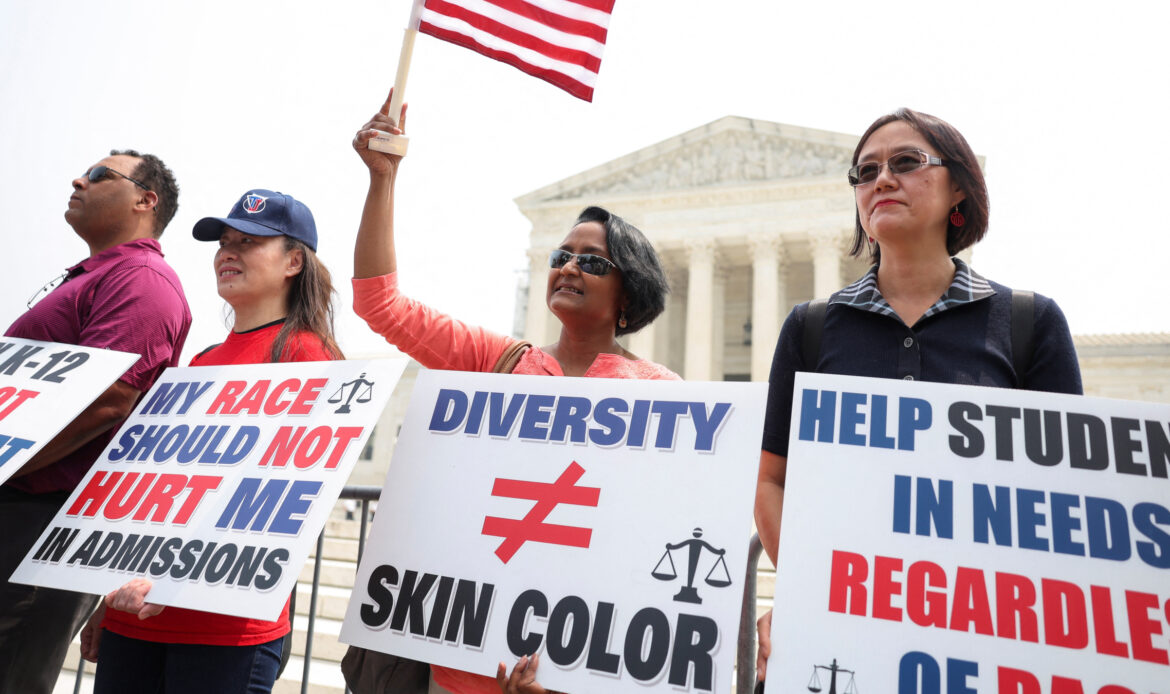
The Supreme Court on Thursday ruled that the affirmative action admission policies of Harvard and the University of North Carolina are unconstitutional.
The ruling is a massive blow to decades-old efforts to boost enrollment of minorities at American universities through policies that took into account applicants’ race.
“Eliminating racial discrimination means eliminating all of it,” wrote Chief Justice John Roberts in the majority opinion, which all five of his fellow conservative justices joined in.
Roberts wrote said that both Harvard’s and UNC’s affirmative action programs “unavoidably employ race in a negative manner, involve racial stereotyping, and lack meaningful end points.”
“We have never permitted admissions programs to work in that way, and we will not do so today,” Roberts wrote, finding that the universities’ policies violated the equal protection clause of the Constitution’s 14th Amendment. The clause bars states from denying people equal protection under the law.
The chief justice added, however, that “nothing prohibits universities from considering an applicant’s discussion of how race affected the applicant’s life, so long as that discussion is concretely tied to a quality of character or unique ability that the particular applicant can contribute to the university.”
Justice Clarence Thomas, a Black conservative who wrote a concurring opinion, said that the schools’ affirmative action admissions policies “fly In the face of our colorblind Constitution.”

